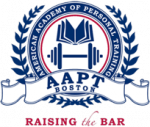Regulation in the Fitness Industry and What That Means for Trainers, Clients, and Employers
In our last blog post, we talked about understanding the difference between certificates and certifications for personal trainers, and why it matters. Today, we’ll go a little deeper and discuss regulation in the fitness industry (or lack thereof), and what that means for trainers, clients, and employers.
What does “regulation in the fitness industry” mean, exactly?
There is no single industry standard or regulation with which to measure the qualifications of a personal trainer. There is no federal or state oversight in personal training at all. In other words, virtually anyone can call themselves a personal trainer or a fitness expert. Why? Because there is nothing that says they can’t! Anyone can go on social media and post online workout tutorials (even if they have bad form); furthermore, anyone can pay a fee to complete an online course, pass a test, and obtain a personal training certification. (See our last blog post to learn more about certifications vs. certificates).
The guidelines for trainers vary widely by gym/employers. Many gyms require the personal trainers they hire to have at least a certification, but a lot of others, perhaps surprisingly, do not. Some require only a certification, so a trainer they hire might not have any education (beyond a short online course) or hands-on experience. And how are potential clients supposed to know the difference between a qualified trainer and an unqualified one? If they join a gym and decide to buy a personal training package, they are putting their trust in that gym and the trainers the gym employs.
Why is this lack of regulation problematic?
This lack of regulation in the industry can be hugely problematic for personal trainers, employers, and clients alike. If personal trainers aren’t getting the education and training they need, they’re not being set up for success in their careers. They might think an online certification is all they need and they don’t want to put the extra time, effort, and money into a good program where they can obtain a certificate. They might think they’re ready to be a trainer only to discover that, in a first session with a new client, they feel totally unprepared. An unqualified personal trainer, at best, is not getting their client the results they want; at worst, they could cause their client serious injury. And for employers, having unqualified personal trainers on your staff can not only reflect poorly on your business, it can make you vulnerable to lawsuits; there are no federal or state regulations in place to protect employers or trainers.
What does this mean for trainers, clients, and employers? What is the solution?
Because there is such a lack of regulation in the industry, the responsibility falls to the individual party—the trainer, the client, or the employer—to educate themselves, and ensure trainers do have proper qualifications.
- For personal trainers or people wanting to become personal trainers: do a lot of research. Read up on both online certifications and certificate programs, and make sure you’re using reputable sources: don’t just believe anything you read online or only watch TikTok videos. Be sure to invest your time and effort into a program that provides hands-on training, like practice sessions; look beyond just a simple online certification program and enroll in a certificate program, like one of AAPT’s programs. This will take more time and effort, but will ultimately make you a better trainer and be better for your career in the long run.
- For employers: think about what kinds of qualifications you want your trainers to have before you hire them. Do you want to hire trainers who have only obtained an online certification, a “piece of paper” that says they completed a course? Or would you rather hire trainers who have a deeper knowledge about fitness and exercise science, who have hands-on experience, and who are willing to put in the extra work to learn? What kind of support and training will you provide them as they grow in their careers?
- For clients: It can be somewhat difficult to know what to ask a personal trainer, especially if you have never had a personal training session before or you’re a novice to exercise in general. To start, view our blog post about 8 questions to ask your personal trainer before you hire them. Read their bio, find out what their background is like, and what certificates and/or certifications they have. The gym you belong to should have this information as well, so find out what the gym’s, or the employer’s, requirements for trainers are.




